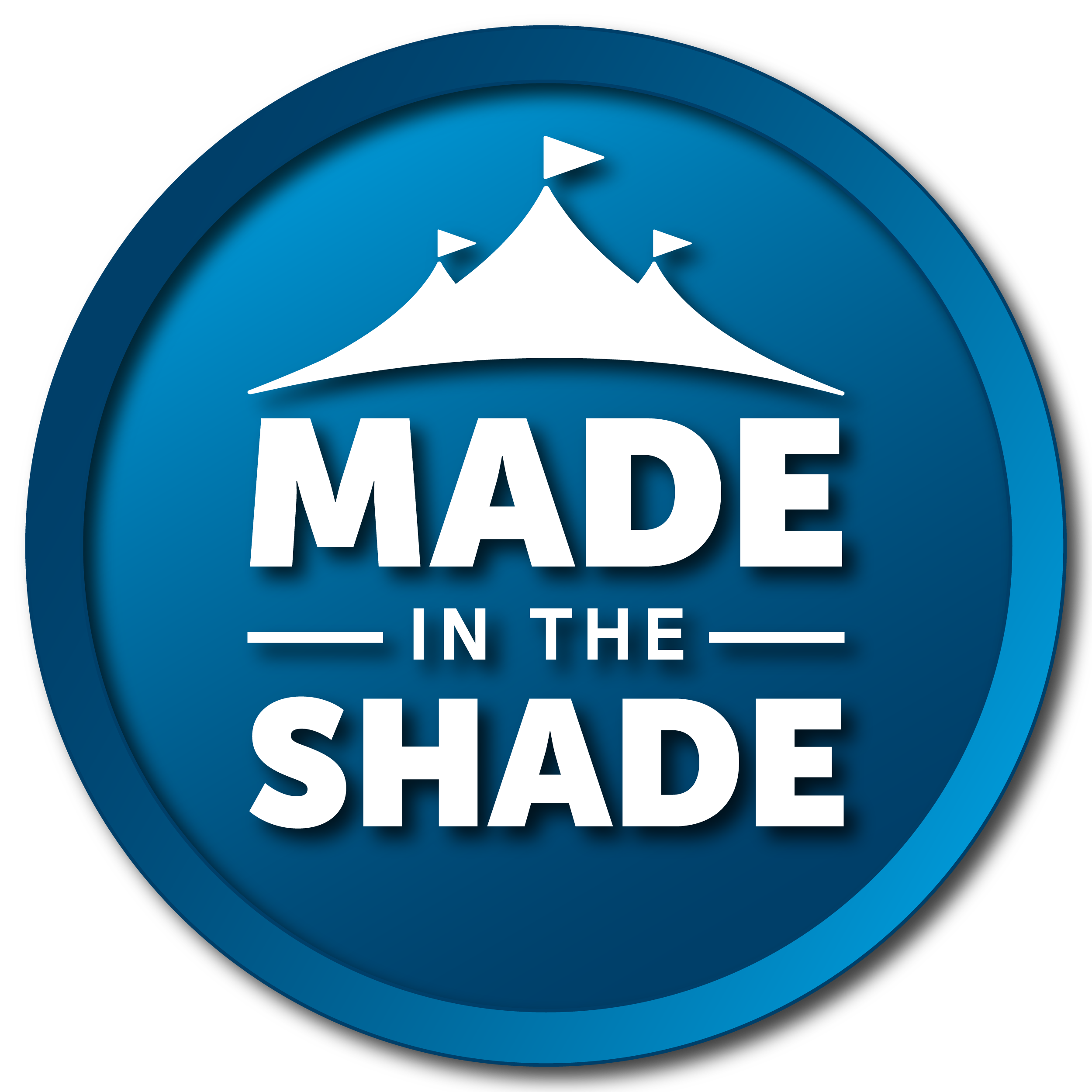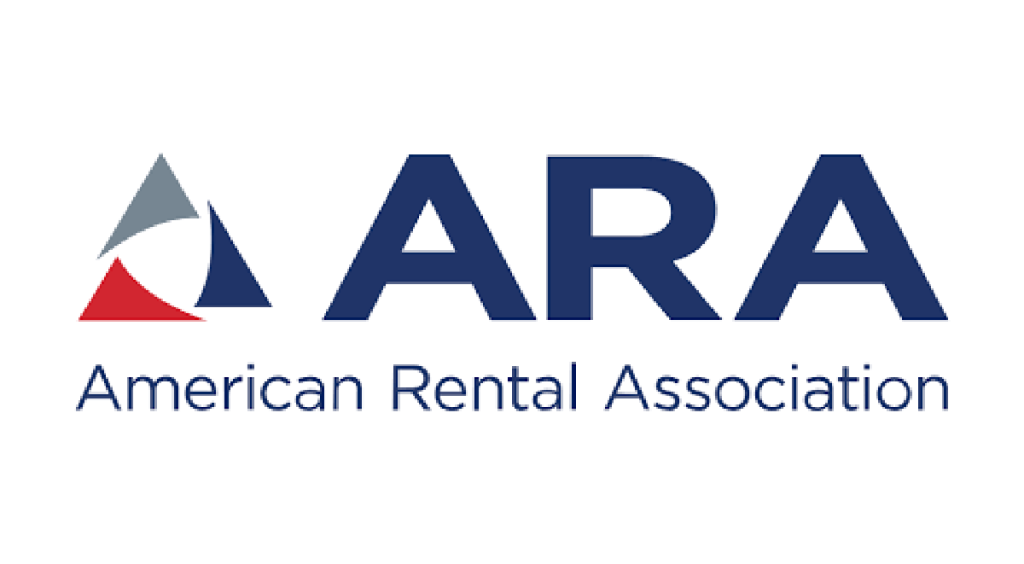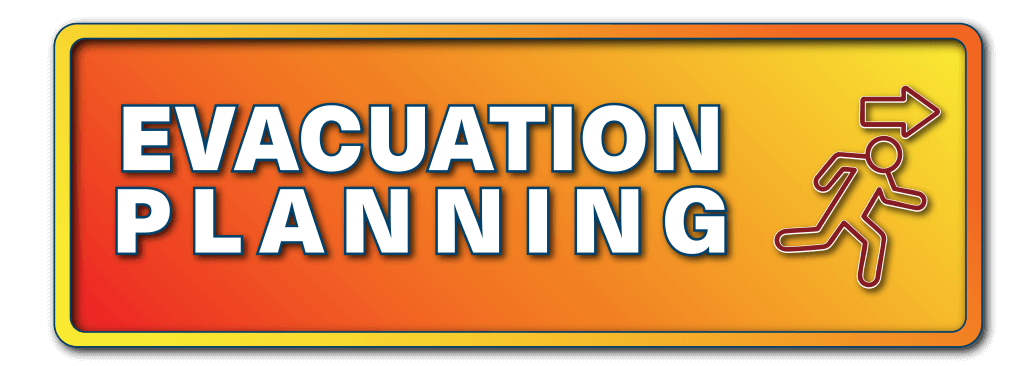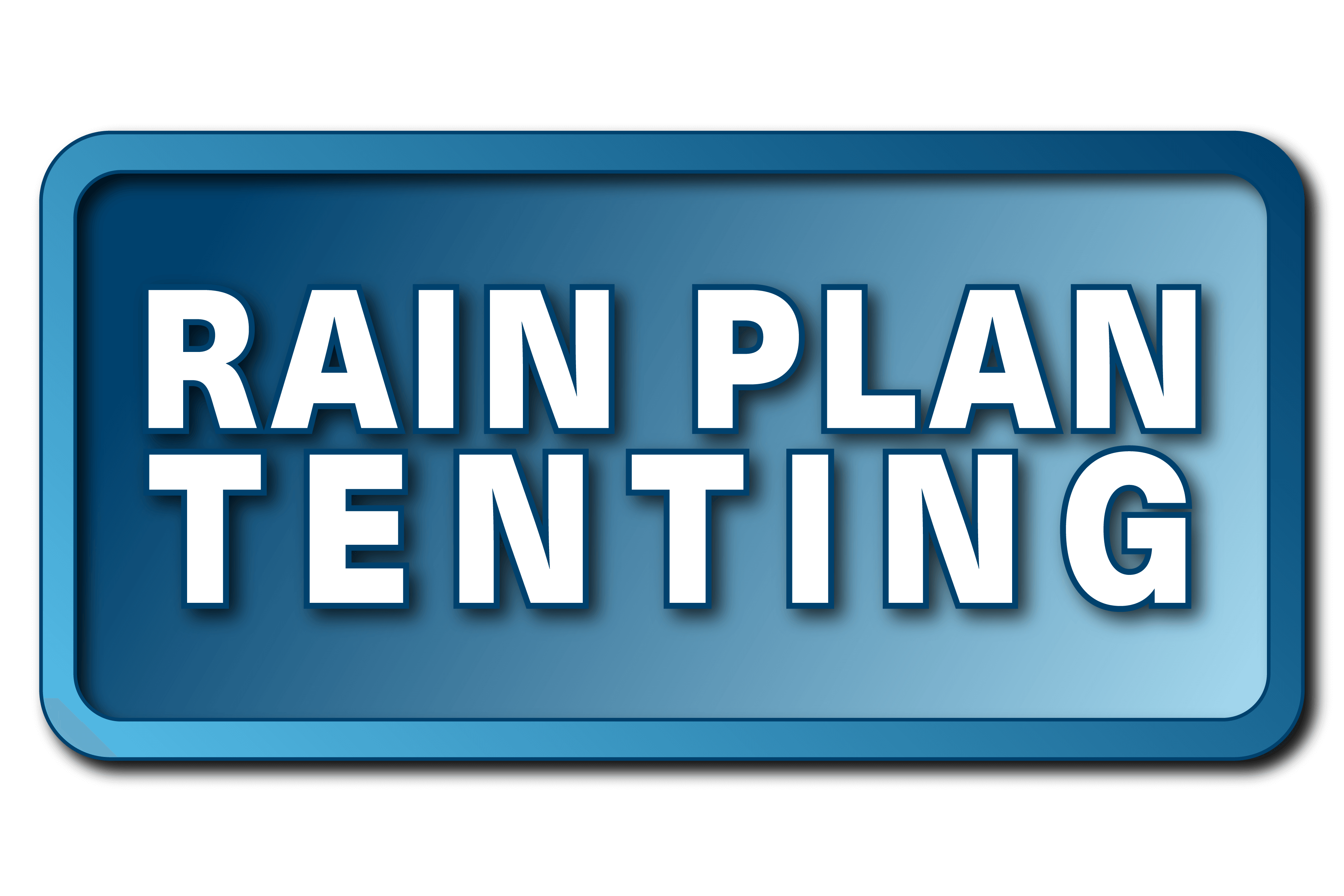
WE’VE GOT YOU COVERED, RAIN OR SHINE!
Rain plan tents may be your last resort. Since tents are designed to provide shelter from the elements, exploring the tent options can give you some peace of mind should the weather change. It is important to point out that tents are temporary structures. As temporary structures, tents are not the equivalent to an actual building. However, tents will provide genera protection from the rain. Adding sidewalls will improve your protection. Finally, by adding flooring you will get maximum protection from below and above. The information provided here will help you understand rain water mitigation if a tent is in your possession before, during, and after a storm. This includes steps to take to prepare and how to notify Made in the Shade if there is an emergency related to the equipment on rent.
![]()
RAIN WATER MANAGEMENT
WATER RUNOFF AND POOLING
Water runoff and pooling are critical factors to consider when using temporary structures. While rain from above is a common concern, water can also impact your setup from ground-level pooling or drainage issues. Proper placement of the tent during the wetter months (October – May) is essential.
PLACEMENT OF TENTING
If your tent or structure is on asphalt or concrete, identify areas where water may drain or pool. Consult with venue managers to place the structure in a spot less prone to water issues during heavy rainfall. Runoff can enter tents placed directly over or near storm drains or in low-lying areas that collect water. The same considerations apply to installations on grass, dirt, or crushed granite, which can become muddy or flooded.
Note: Made in the Shade is not responsible for water runoff or pooling inside the tent.
RAISED FLOORING
If you anticipate issues with water runoff, soggy ground, mud, or pooling, a raised floor can mitigate these problems. Although adding a raised floor will increase the rental cost, it’s the most reliable way to protect your event from water-related issues.

PREPARING FOR WIND
In Northern California, wind is common, especially from October through February. High winds can affect tents even when properly secured, and they may loosen bungees or shift the structure. We recommend checking the weather forecast for wind conditions before your event.
SIDE WALLS
Side walls can provide wind protection. As the end user, monitor these walls to ensure they remain taut and securely connected to the tent’s legs.
LIGHTNING
MITIGATE THE RISK
Lightning poses a high risk for electrocution. If you are experiencing lighting and thunder within 5 miles of the tented location you should execute your evacuation plan (See information below regarding steps to take while creating a plan). The responsibility to determine when and how to evacuate falls on the customer. The aluminum tent frame can act as a conduit, attracting lightning to the frame of the tent. Evacuations should be clear of tenting and any trees or poles. Occupants of the tent should see cover immediately if an evacuation order is called.
GUTTERS & MAINTENANCE
GUTTER SYSTEMS
If your rental includes a gutter system, some responsibility rests with you, the renter. Since Made in the Shade staff cannot remain on-site during rainstorms, it’s essential to periodically check the gutters to prevent water buildup. Ensure the gutters are clear and that water can flow freely.
During heavy rain, water may begin to pool on the tent’s eaves. Monitor these areas, and if you notice pooling, tighten straps and gently push the water out to prevent stretching or damage to the vinyl. Left unattended, pooling can create larger problems.
EVACUATION PLAN
If winds are forecasted to exceed 50 mph, we recommend having an evacuation plan in place. While most of our structures can withstand winds of 90+ mph, safety should always come first, and evacuating around 50 mph is a prudent precaution.
Provided by

Learn more about planning for wind & rain by clicking on the hyperlink buttons below.
WE ARE HERE TO HELP
Our staff is ready to answer questions or provide additional assistance. Contact us today by PHONE or EMAIL.
To obtain a tent rental estimate for an upcoming event, complete the REQUEST A QUOTE form.









